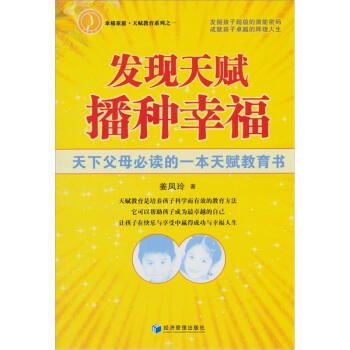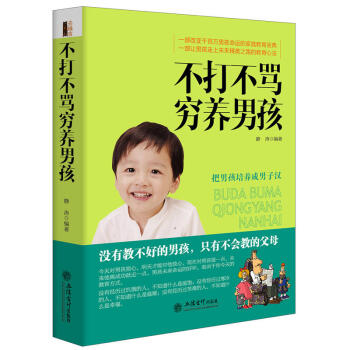

具体描述
基本信息
书名:不打不骂养育男孩
定价:36元
作者:静涛
出版社:立信会计出版社
出版日期:2014-06-01
ISBN:9787542942173
版次:1
装帧:平装
内容提要
男孩与女孩相比,天生精力旺盛,好奇心更强,破坏性强。不少父母在教育男孩方面,采用粗暴的打骂方式,而且有的父母在打骂男孩的时候,高举爱的名义,口口声声说“我都是为你好”。殊不知,打骂男孩虽然能使男孩一时表面服从,但却会令其产生怨恨、逆反、畏惧等心理,只会压抑男孩的个性,甚至造成男孩人格的畸形。
《不打不骂穷养男孩》强调尊重男孩的独立人格是家庭教育中的重要原则,从了解男孩的特征和走进男孩的内心世界开始,阐述现代父母应如何培养精英男孩,做个合格的好父母。其中包括怎样与男孩沟通,怎样夸奖、批评男孩,怎样培养男孩的品格,怎样提高男孩的情商、智商、财商等等,旨在帮助父母改变打骂男孩的恶习,与男孩建立健康的亲子关系,以科学的方式引导男孩健康成长,为男孩美好的未来打下坚实的基础!
目 录 第1 章 男孩与女孩天生不一样说一说男孩独有的“Y”染色体
查一查男孩调皮捣蛋的“祸首”
男孩与女孩谁更聪明大脑说了算
0~6岁——喜欢腻在母亲的怀抱里
6~13岁——想成为爸爸那样的男子汉
14岁到成年——进入盎然的青春时代
第2章 男孩是难“控制”的
男孩天生就是“冒险王”
每个男孩都有“英雄情结”
男孩多是精力旺盛的“淘气包”
每个男孩都想当“大王”
让父母苦恼不已的“破坏王”
“威信”不是教训出来的
别让打骂男孩成为一种习惯
以“骂”代“教”不可行
以“打”代“教”不可取
第3章 不打不骂做个好父母
视心情好坏对待男孩缺乏理智
无原则地随意乱发脾气不可取
父母应学会调节自己的情绪
以身垂范,好父母胜过好老师
父母要拿捏好爱男孩的“分寸”
教育男孩父母态度要一致
别忽视家庭环境对男孩的影响
给男孩创建良好的成长环境
第4章 自古纨绔少伟男
穷人的孩子为何当家早
溺爱是男孩成长的大敌
不要让男孩坐享其成
警惕男孩的“王子病”
对男孩的攀比心理进行及时疏导
过分阔绰的生活会助长男孩的坏习气
避免男孩产生“小皇帝”的优越感
警惕男孩的“蛋壳心理”
能干的父母,夺走了男孩成长的机会
巨额财产难保孩子一生富贵平安
第5章 穷养男孩并非放养
男孩的魄力从苦难中来
对男孩“狠”一点
为男孩创造条件适应社会
大多数的成功者都有过“穷”养经历
让男孩有意识地管理自己
男孩娇滴滴,没有竞争力
不经风雨何以见彩虹
强健男孩的内心
磨难是男孩成长的礼物
克服苦难是艺术
第6章 走进男孩的内心世界
理解,孩子的世界像水晶
纠正,让孩子不再霸道
反省,让孩子认识自己的错误
宣泄,给孩子一个释放情感的机会
暗示,巧妙引导不听话的孩子
冷静,处理好孩子的过分要求
疏导,让孩子的心理没压力
尊重,孩子也有隐私
信任,他的时间他做主
第7章 时刻关注男孩的情绪
不能让孩子成为情绪的俘虏
让孩子意识到不良情绪的危害
帮助孩子梳理自己的情绪
冲动让孩子失去理智
教会孩子释放不良情绪的方法
告诉孩子几个快乐的法则
对待脾气暴躁的孩子怎么办
敌意,让孩子变得好斗
嘲笑,让孩子变得畏缩
第8章 穷养的男孩内心很强大
对症下药,让男孩走出自闭的天地
让自卑的孩子昂首向前
帮男孩甩掉“胆小鬼”的帽子
莫让孩子的虚荣心同身体一起“发育”
引导孩子不盲目攀比
不让孩子生活在恐惧中
百害而无一利的自我否定
帮孩子克服害羞心理
帮男孩驱散紧密相随的孤独
调整孩子的依赖心理
改正孩子的骄傲自满
引导孩子告别“网瘾”
第9章 不打不骂给男孩成功个性
为孩子做个好榜样
诚实是为人处世的根本
教孩子以谦逊为美德
让孩子拥有一颗博爱宽容的心
会分享的孩子才会爱
责任感决定孩子能承担什么
独立性决定孩子能做什么事
意志力决定孩子的路能走多远
让孩子明白荣誉是什么
培养孩子积极乐观的心态
信用是可以“传染”的
懂得放弃
给孩子一颗感恩的心
孩子能够自我约束
家有环保小公民
第10章 让男孩锻炼出健康的体魄
让男孩养成早睡早起的作息习惯
鼓励儿子进行体育锻炼
让孩子睡硬板床
男孩睡得好身体就好
小病少吃药,增强男孩的抵抗力
要多带男孩到大自然中走一走
保证男孩有足够的睡眠时间
不要让男孩娇生惯养
第11章 教男孩培养绅士风度
不要教男孩虚伪地客套
虚荣会毁了孩子
让男孩知道什么是美和丑
“人要衣装”并非“人靠衣装”
防止孩子虐待小动物
教育男孩热情接待来访者
让孩子知道道歉不可怕
让孩子记得说“谢谢”
纠正男孩骂人的不良习惯
帮助男孩建立所有权的观念
第12章 帮男孩跨越青春期障碍
警惕,男孩已经进入青春期
父母向左走,男孩向右走
青春期的男孩像刺头
做孩子第* 1 任性教育老师
敏锐发现男孩性意识的觉醒
早恋是青春的坟墓
分享阳光、分担风雨
电脑那端的小朋友
教男孩正确面对开放的社会
不要养个“电视孤独儿”
别让男孩变成烟鬼、酒鬼
严防孩子沾上毒品
第13章 把男孩培养成男子汉
应变能力:让孩子学会随着情况变
记忆力,把孩子培养成学习的天才
理财能力,让孩子懂得金钱的价值
动手能力,让你的孩子心灵手巧
时间管理能力,教孩子掌控时间和生活的学问
观察能力,给孩子一个国际化的视野
幽默才能,让快乐一生相随
艺术才能,让一切更精彩
领导能力,让孩子从容一生
免费在线读
第3章 不打不骂做个好父母
在我国,父母情绪不好时,往往喜欢拿孩子出气,如工作不顺,身体不适,或处于更年期,更容易对孩子发火。对男孩发火,不仅无法纠正男孩错误的行为,反而会使男孩在生理、心理上产生消极的应激状态。所以,要想帮助男孩改正错误,避免对抗,父母首先要学会控制、调节自己的情绪。
视心情好坏对待男孩缺乏理智
有的父母一心想把男孩教育好,但是却没有很好运用现代教育理念,经常感情用事,忽冷忽热,情绪不是很稳定。心情不好时便对男孩没有好气,即使一点儿小事,也会暴跳如雷,甚至大动干戈;心情好的时候,就对男孩和颜悦色,溺爱无比,男孩有什么要求都充分满足,父母这样喜怒无常,总会弄得男孩无所适从。
如果是遇到爱吵架的夫妻,喜欢拿男孩出气,成了常见的情况。当然,这是不可取的。父母爱吵架,无疑给男孩造成心理阴影,这样父母再管教男孩时就会失去威信,男孩也会变得越来越不听话。父母一旦在孩子面前没有了威信,再管孩子就会变得困难了。
男孩的父母要想教育好男孩,一定要有理智、讲方法。爱男孩要讲分寸,严厉也要有尺度。例如,当男孩已经认识到错误时,就不应再批评或是惩罚他。
有一个小男孩,平时很调皮。父母要打他时,他总是流泪讨饶,但是父母却照打不误。后来,无论父母怎样打他,他也不哭不喊,连眼泪也不流了,只是用怨恨的目光瞪着父母。要知道,男孩子天生就是淘气的,就是精力旺盛。如果他一淘气你就打他,那势必对男孩的身心造成影响。有些父母也知道这些道理,但是自己脾气不好,一旦情绪上来,想控制都控制不住。
不少父母,平时对男孩百依百顺,但是,一旦男孩违反了自己的意愿,或是不尽如人意的时候,特别是学习成绩不好的时候,便气不打一处来。即使男孩有自己的特殊原因,父母也照样拳脚相加,没有半点儿宽容之意。当男孩明白,在父母面前解释、求饶是没有用的时,也就不再解释,不再流泪,父母要发怒的时候,就等着父母的打骂,但是却已经产生了逆反心理。
培根说:“幸福的家庭,父母靠情感当家。”教育男孩是一门学问,要学会抓住教育时机去获得教育的佳效果。教育男孩不应该感情用事,而应抓住教育时机,动之以情,晓之以理,帮助男孩去成长。
一些父母因为性格喜怒无常,善感情用事,在对待男孩上也时而严格要求,时而放纵溺爱。一位美国学者曾这样评价中国的家庭教育:“中国父母在向孩子表达爱时,往往不在乎他们内心里想些什么,头脑里有什么困惑,是否觉得不安,而更多的是问孩子吃得饱不饱、穿得暖不暖。”也许中国的父母从来没有意识到心理教育对孩子健康成长的重要性,虽然为男孩提供了优越的物质生活,却从不关心孩子的心灵世界。他们可以节衣缩食给男孩买钢琴,也可以因为男孩钢琴练得不好而拳脚相加。
许多男孩在这种畸形的教育方式下,不但不能成“龙”,甚至成人也难。他们一方面厌倦父母的精神枷锁;另一方面,当他们脱离了父母的羽翼时,又感到无所适从。每个当父母的都应该反省一下,这种不理智、不智慧的教育让男孩怎么健康成长!简单地采取胡萝卜加大棒的方式是不能培养出优 人才的。
有位年轻的母亲脾气很不好,喜欢感情用事,乱发脾气。一次,她的儿子饭后帮助大人扫地,哪知偏遇上这位母亲跟自己的婆婆怄气,见儿子拿着扫把在厅中舞弄,不分青红皂白上去就是一巴掌,打得男孩哇哇哭,不知道自己错在哪里,以前自己帮着扫地的时候,妈妈总是夸奖的。
可怜男孩莫名其妙地挨了揍,他以后还肯拿扫把吗?男孩不拿扫把还不要紧,可怕的是男孩将来不懂得分清是非,遇事同样感情用事,那就麻烦了。另外,如此管教男孩,等男孩渐渐长大懂得些道理了,便会感到委屈而且不服气,天长日久,对父母的尊敬也会一落千丈,那时自食其果的还是父母。
用户评价
当我在书店看到这本书时,它给我一种踏实而充满希望的感觉。书名中的“好妈妈不打不骂”,触动了我内心最柔软的部分。我一直认为,爱是教育的基石,而打骂则是对这份爱的破坏。但现实中,我也常常会因为孩子的顽皮而感到力不从心,甚至会情绪失控。我希望这本书能够提供一种更温和、更有效的方法,让我能够真正做到“不打不骂”,并且在潜移默化中引导孩子走向正途。而“穷养男孩”,更是一个让我深思的概念。在这个物质极大丰富的时代,如何让男孩们不被物欲所困,学会珍惜,学会奋斗,学会感恩,这是我一直在思考的问题。这本书是否会从更深层次的角度,探讨“穷养”的真正含义,并提供一些切实可行的实践方法,让我们能够在这个过程中,培养出男孩坚韧的品格和独立思考的能力?我期待这本书能够成为我育儿道路上的指路明灯,为我提供智慧的启迪和实践的指导,帮助我养育出健康、快乐、有担当的男孩。
评分这本书的封面设计着实吸引了我,淡雅的色彩和温馨的插画,让人一眼就感受到一种柔和而充满智慧的力量。我之前读过不少育儿书籍,有些过于理论化,有些则显得过于严苛,总是让我感到无所适从。而这本书的名字,特别是“好妈妈不打不骂”和“穷养男孩”,立刻戳中了我的心。我一直认为,父母的情绪和教育方式对孩子的成长有着潜移默化的影响,尤其是在男孩的成长过程中,温柔而坚定的引导,比粗暴的打骂更能塑造他们的品格和独立性。这本书似乎提供了一种全新的视角,让我对“穷养”有了更深刻的理解,它不再是物质的匮乏,而是精神上的富足,是如何通过有限的资源,教会孩子珍惜、感恩和创造,而不是一味地满足他们的物质欲望。我迫切地想知道,作者是如何将这些理念具体化,如何在日常生活中实践,如何帮助那些在物质上并不富裕的家庭,也能养育出优秀、有担当的男孩。这本书的出现,仿佛为我指明了一盏灯,让我看到了教育的另一种可能性,一种更符合我内心期待的方式。
评分读完这本书的简介,我有一种久违的期待感。作为一位母亲,我深知教育孩子是一项充满挑战但也无比 rewarding 的事业。特别是对于男孩的教育,我一直认为他们需要的是榜样,是引导,是让他们学会如何成为一个顶天立地的男子汉,而不是被动地接受命令或依赖。这本书的名字“好妈妈不打不骂穷养男孩”,一下子就击中了我的痛点。“不打不骂”听起来很美好,但如何在实践中做到,并且保持教育的有效性,这其中的智慧才是关键。而“穷养男孩”,更是让我思考,我们作为父母,究竟应该给予孩子什么?是无尽的物质,还是教会他们如何去创造和珍惜?我非常好奇,这本书是如何将这两个看似矛盾的概念融合在一起,并且提供切实可行的教育方法。它是否会教我们如何通过鼓励、沟通和身教,来塑造男孩的品格?它是否会提供一些具体的案例,让我们知道如何在日常生活中,引导男孩发现自己的兴趣,培养他们的独立思考能力和解决问题的能力?我期待这本书能成为我育儿路上的良师益友,带给我启发和力量。
评分在孩子成长的道路上,我始终在寻找那种能够真正触及灵魂的教育方法,而不是那些仅仅停留在技巧层面的指导。这本书的书名,尤其是“如何培养教育孩子”和“成长家教书籍”这样的定位,让我觉得它不仅仅是一本普通的育儿指南,更像是一本关于人生智慧的启迪。我一直对“不打不骂”的教育方式非常认同,但有时在实践中,会因为自己的情绪失控而打破原则,事后又深感愧疚。这本书是否能够提供更系统、更易于操作的方法,帮助我在面对孩子的挑战时,始终保持冷静和耐心?而“穷养男孩”这个概念,更是让我眼前一亮。我总觉得,过度的溺爱和物质的满足,反而会剥夺孩子体验生活、学习解决问题、培养独立性的机会。这本书会如何解读“穷养”的真正含义,它是否会教我如何通过生活中的点滴,去培养男孩的坚韧、自理能力和创造力?我非常期待它能为我提供一套完整的教育理念,帮助我在有限的条件下,最大化地发挥孩子的潜能,让他们在精神上成为一个真正富足的人,而不是仅仅物质上的优渥。
评分这本书的书名,如同一声温柔的呼唤,唤醒了我内心深处对理想教育的渴望。我一直坚信,每个孩子都是独一无二的,他们需要的教育方式也应有所不同。“好妈妈不打不骂穷养男孩”这句话,不仅仅是一个口号,更是一种教育理念的宣言。我尤其对“不打不骂”这一点非常感兴趣,因为我知道,情绪化的管教往往会适得其反,伤害孩子的自尊心,破坏亲子关系。这本书是否会提供更深刻的心理学原理,或者更实用的沟通技巧,来帮助父母有效地引导孩子,而不是依赖惩罚?而“穷养男孩”,则让我思考,在当今这个物质充裕的时代,我们如何才能真正做到“穷养”,让男孩们学会珍惜,学会感恩,学会通过自己的努力去获得幸福,而不是被宠溺得丧失斗志。这本书会不会提供一些关于如何培养男孩独立性、责任感和创造力的具体建议,甚至是一些关于如何利用有限资源,让孩子体验更丰富人生的方法?我期待这本书能为我打开一扇新的窗户,让我看到一种更智慧、更富有远见的育儿之道。
相关图书
本站所有内容均为互联网搜索引擎提供的公开搜索信息,本站不存储任何数据与内容,任何内容与数据均与本站无关,如有需要请联系相关搜索引擎包括但不限于百度,google,bing,sogou 等,本站所有链接都为正版商品购买链接。
© 2026 windowsfront.com All Rights Reserved. 静流书站 版权所有


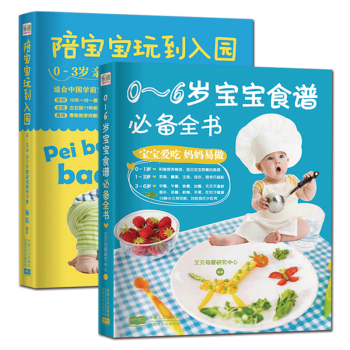

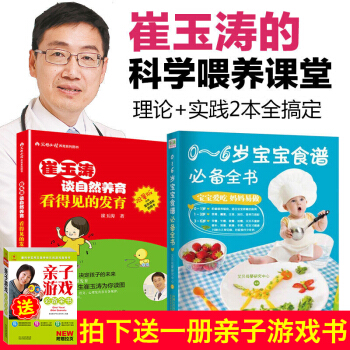






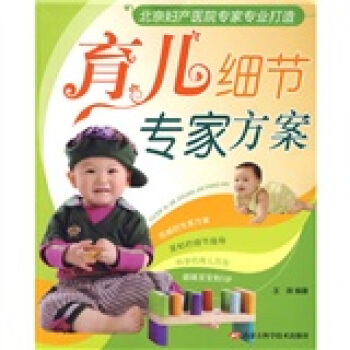

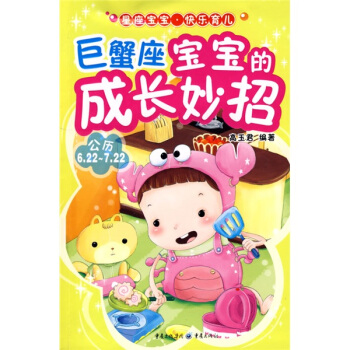



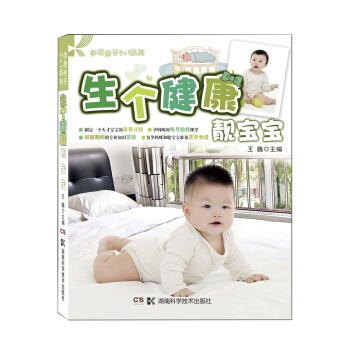
![宝宝趣味早教必读7:双鱼座(附DVD光盘1张) [Must-Read Knowledge for Baby Early Education] pdf epub mobi 电子书 下载](https://pic.windowsfront.com/10969083/575691ddN3fd452fa.jpg)
![宝宝趣味早教必读1:白羊座(附DVD光盘1张) [Must-Read Knowledge for Baby Early Education] pdf epub mobi 电子书 下载](https://pic.windowsfront.com/10969091/5756897cN740ffb7e.jpg)
